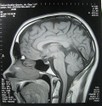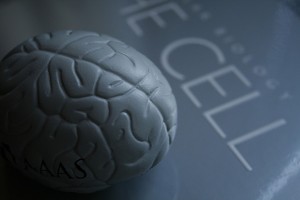Parents - Prevent Drinking to Prevent Developmental Brain Damage
While it may not seem like you have much control over the behaviors of your teen children, research shows that parents have a lot more influence than they realize and that what parents say and do has a powerful influence over a teen’s likelihood to get involved with drugs of alcohol.
And this is important, because not only are teens that start drinking at a younger age far more likely to develop later in like alcohol problems – alcohol is also uniquely damaging to the still developing teen mind – and heavy drinking in adolescence can lead to permanent brain damage that can affect quality of life and cognitive abilities long after teen partying comes to an end.
Teens who start drinking before the age of 15 are 4 times more likely to become alcohol dependent at some point in life.1
Unfortunately, although the teen brain is at greater risk to alcohol caused damage, because the brain is still in development, teens are also uniquely attracted to what alcohol has to offer.
Read on to learn more about why adolescent brain development increases the odds of binge drinking and what consequences heavy drinking during adolescence can have on eventual brain development.
How Brain Development Increases the Risks of Heavy Drinking
The Adolescent Brain: Increased Risk of Brain Damage and Developmental Changes that Support Heavy Drinking - A Bad Combination
Teens don’t always make smart choices, and in some cases, like when making choices about drinking, incomplete brain development plays a role in influencing behaviors.For example:
The limbic system in the brain (responsible for regulating emotions and pleasure) develops faster than the frontal lobes, which handle higher order tasks like reasoning, decision making and impulse control. This varying rate of development increases an adolescent’s desire for novelty and excitement as it also decreases her aversion to risk and her ability to gauge the likely consequences of a given action.
Alcohol affects teen brains differently. Teens that binge drinks are less likely to feel drowsy and typically experience less loss of coordination than adult drinkers. Significantly, adolescents also typically experience milder hangovers than adult drinkers. Getting sleepy and worrying about feeling hung-over the next day are 2 factors that reduce the amount an adult may choose to drink in a session which may not have much influence in reducing an adolescent’s alcohol consumption.
Adolescents are also more likely to perceive a benefit in how alcohol affects social interactions (social lubrication) 2
The Consequences of Heavy Drinking on Brain Development
The adolescent years are a time of significant brain development and social and heavy alcohol use during this vital developmental stage can lead to enduring cognitive consequences, for example:
In one study of alcohol dependent 15 and 16 year olds, teens who had become addicted to alcohol performed significantly worse on tests that measured short term memory (they were less able to remember a serious of words or shapes 10 minutes after being shown a list or picture and asked to remember as many as possible)
Animal studies show that heavy alcohol exposure in adolescence can lead to memory problems that persist into adulthood, long after any drinking stops.
Brain imagery studies on alcohol dependent 17 year olds show that heavy alcohol use during this developmental stage influences brain growth in ways that can be seen visually. In brain scans, the hippocampuses of alcohol dependent teens were noticeably smaller than those of teens who did not abuse alcohol. The hippocampus is a primary center for memory formation and retention in the brain.3
Prevention Efforts Are Vital
Teens have it rough. Although their brains are hard wired to seek out excitement and novelty and although they are uniquely able to enjoy the pleasures of alcohol without experiencing some of the adverse effects, their brains are also still in such rapid development that the frequent use of alcohol can cause some lasting memory and cognitive impairments.
So it really comes down to parents - and to a lesser extent to schools and to the community as a whole. We cannot expect adolescents to make the right choices (their brains will hardly let them) so we must guide them to better decisions and monitor their activities to such an extent that we limit the repercussions of their harmful choices.
References
Post a comment 0
Copyright Notice
We welcome republishing of our content on condition that you credit Choose Help and the respective authors. This article is licensed under a Creative Commons License.
Helpful Reading:
-
 8 Ways To Heal Your Liver After You Quit Drinking
8 Ways To Heal Your Liver After You Quit Drinking
How’s your liver? Find out more about alcoholic liver diseases, and most importantly, learn 8 ways to heal your liver now that you’re no longer drinking! (If you’re still drinking too much, there’s really only 1 thing you need to do - stop hurting your liver.)
Read the complete article -
 Wet Brain - Wernicke-Korsakoff Syndrome
Wet Brain - Wernicke-Korsakoff Syndrome
Long years of heavy drinking may lead to a thiamine deficiency, and a syndrome known as Wernicke-Korsakoff (wet brain). Much of the brain damage experienced is unfortunately irreversible.
Read the complete article -
 Understanding Addiction - What You Need to Know
Understanding Addiction - What You Need to Know
Want to understand addiction? Here are the straight facts from the American Society of Addiction Medicine.
Read the complete article

 John Lee
John Lee



